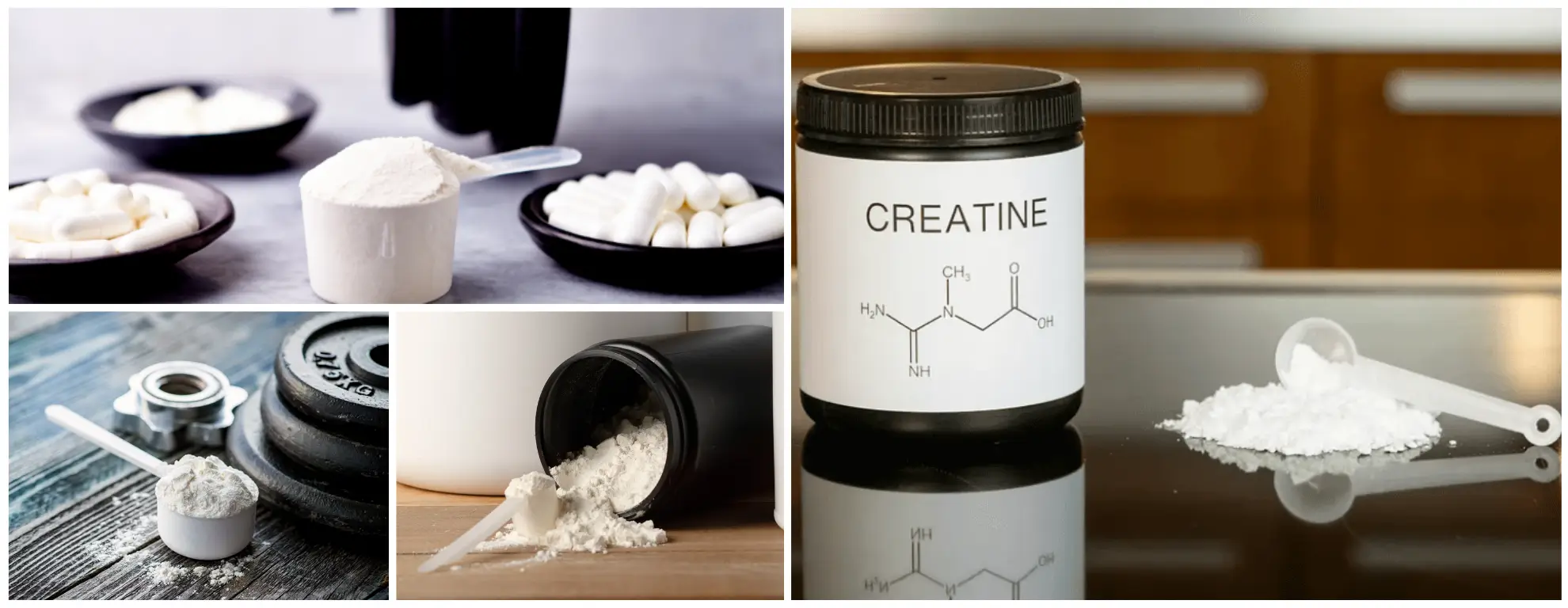Creatine is one of the most well-known and widely used dietary supplements, especially among athletes and fitness enthusiasts. But is creatine truly a dietary supplement?
The answer is yes, creatine is classified as a dietary supplement, It’s naturally found in small amounts in food like red meat and fish, specifically used to enhance physical performance and support muscle growth.
Creatine supplements are not considered medications or drugs, but rather nutrients that help boost energy production in muscles during intense physical activities. It’s widely used to improve strength, endurance, and recovery, making it a popular choice for bodybuilders, athletes, and anyone looking to increase exercise performance.
This article explores creatine’s biological role, regulatory classification, and safety profile to clarify its place in the world of nutrition and supplementation.
Whether you're a brand owner formulating performance gummies or a health-conscious buyer choosing your first creatine product, understanding this distinction is essential.

What Is Creatine?
Creatine is a naturally occurring compound found primarily in muscle cells, where it plays a vital role in energy production, especially during high-intensity physical activity. It helps regenerate adenosine triphosphate (ATP) — the body’s main energy currency — allowing muscles to perform better under stress.
While the body synthesizes creatine from amino acids (arginine, glycine, and methionine), it can also be obtained from dietary sources like red meat and fish, or via supplementation.
In the context of fitness and sports, creatine is used to support:
- Increased strength and power output
- Improved muscle mass over time
- Enhanced recovery between workouts
- Greater anaerobic performance
Creatine monohydrate is the most studied and commonly used form, though other variations like creatine HCl and creatine nitrate exist.
Is Creatine Considered a Dietary Supplement?
Yes — in most countries, creatine is officially recognized as a dietary supplement, but the specific definition and regulatory classification can vary slightly depending on the region.
🏛 U.S. Definition (FDA)
According to the U.S. Food and Drug Administration (FDA), a dietary supplement is defined under the Dietary Supplement Health and Education Act of 1994 (DSHEA) as a product intended to supplement the diet that contains one or more dietary ingredients — including vitamins, minerals, herbs, amino acids, and other substances.
✅ Creatine qualifies under this definition as a naturally occurring compound that is commonly consumed to enhance athletic performance and muscular energy.
Creatine is not classified as a drug or conventional food. Instead, it is legally sold as a dietary ingredient in various forms, including powders, capsules, and more recently, functional gummies.
EU Definition (EFSA)
In the European Union, creatine is also typically classified as a food supplement under the regulation (EU) No 1169/2011 on food information to consumers, and is reviewed by the European Food Safety Authority (EFSA).
EFSA has evaluated creatine for its role in improving physical performance in successive bursts of short-term, high-intensity exercise — a health claim authorized under Commission Regulation (EU) No 432/2012, provided the product contains at least 3 grams of creatine per daily dose.
✅ In both the U.S. and EU, creatine is not considered a medicine or steroid, but a nutritional ingredient designed to support physical performance.
How Creatine Is Regulated
🇺🇸 United States (FDA & DSHEA)
Under DSHEA, creatine is categorized as a “dietary ingredient”, which gives it a clear regulatory status. It does not require pre-approval by the FDA before being marketed, although manufacturers must ensure safety and accurate labeling.
Permitted Health Claims: Claims like “supports muscle strength” or “helps improve performance” are permitted if they are structure/function claims and accompanied by the standard FDA disclaimer.
Manufacturing Requirements: Creatine supplements must be produced under Good Manufacturing Practices (GMP).
Labeling: Products must clearly display Supplement Facts, ingredient lists, and directions for use.
🇪🇺 European Union (EFSA & National Authorities)
In the EU, creatine is regulated as a food supplement, but its use is closely tied to authorized health claims and ingredient limits.
Authorized Claims: The EFSA allows a specific claim: “Creatine increases physical performance in successive bursts of short-term, high intensity exercise” — only valid if the product provides 3g/day.
Novel Food Consideration: Some modified forms of creatine (e.g., creatine ethyl ester) may fall under novel food regulation and require pre-market approval.
Product Registration: In some EU countries (e.g., Spain, Italy), creatine products may need notification or registration before sale.
Is Creatine Supplement Safe?
Creatine supplementation is generally considered safe for most people when used appropriately.
For healthy individuals, creatine is safe to take in recommended doses. Research has consistently shown that creatine, particularly creatine monohydrate, is effective and safe for long-term use when taken as directed. However, some individuals may experience mild side effects, such as bloating or dehydration.
To maximize safety, ensure you're drinking plenty of water, and avoid using excessive amounts beyond recommended doses. Before starting creatine supplementation, it’s important to consult with a healthcare professional, especially for individuals with kidney issues or other pre-existing health conditions.
Is Creatine a Steroid?
No, creatine is not a steroid. Creatine is a naturally occurring compound that helps provide energy to muscle cells. It’s a common misconception that creatine is confused with steroids, especially among those unfamiliar with sports nutrition. While both creatine and anabolic steroids are associated with muscle growth and athletic performance, their chemical structure, physiological function, and regulatory classification are entirely different.
💡 Creatine vs Steroids: Key Differences
| Category | Creatine | Anabolic Steroids |
|---|---|---|
| What It Is | Natural compound found in muscles | Synthetic hormones related to testosterone |
| Function | Recycles ATP (energy) for short bursts | Mimics hormones to promote muscle synthesis |
| Legal Status | Legal dietary supplement | Controlled substance in many countries |
| Side Effects | Minimal when used properly | Serious side effects (liver, heart, hormones) |
| Regulation | Sold OTC under supplement rules (DSHEA) | Requires prescription in many regions |
Creatine is naturally present in foods like red meat and fish, and is synthesized in the liver from amino acids such as arginine, glycine, and methionine. It helps supply quick energy (ATP) to muscles, especially during high-intensity, short-duration activities like sprinting and lifting.
On the other hand, anabolic steroids are synthetic versions of the male sex hormone testosterone, and are used (often illegally) to accelerate muscle growth and recovery, but with significant health risks.
✅ Bottom line: Creatine is a safe, natural, and legal compound — not a hormone and not a steroid.
Is Creatine Safe?
Yes, creatine is one of the most studied and safest sports supplements available today. It has been used for decades by athletes, gym-goers, and even clinical patients for various health and performance goals.
🧪 Backed by Research
Hundreds of clinical studies have evaluated creatine’s safety and effectiveness.
The International Society of Sports Nutrition (ISSN) states that creatine monohydrate is “the most effective ergogenic nutritional supplement” currently available to athletes.
Long-term use of creatine (up to 5 years or more) has shown no harmful effects in healthy individuals at standard dosages (typically 3–5g per day).
⚠️ Common Safety Considerations
| Concern | Scientific Conclusion |
|---|---|
| Kidney or liver damage | No evidence in healthy individuals |
| Cramping or dehydration | Not supported by scientific data |
| Weight gain | Possible due to increased water retention in muscles (normal) |
| Teenagers/Adolescents | Safe if supervised and at appropriate dosages |
Creatine is also being explored for non-athletic applications, such as:
- Neuroprotection (e.g. Parkinson’s, ALS)
- Muscle preservation in aging populations
- Cognitive support in sleep-deprived conditions
✅ For most healthy individuals, creatine is considered very safe when used as directed.
Who Should Use Creatine?
Creatine is beneficial for a wide range of individuals:
- Athletes & Gym-Goers: Enhances performance and muscle recovery.
- Vegans & Vegetarians: Dietary creatine intake is usually lower, so supplementation helps restore levels.
- Older Adults: May support muscle mass, brain health, and physical function in aging populations.
Who Should Avoid It?
Individuals with kidney disease, liver issues, or those on diuretics or medications affecting kidney function should consult their doctor.
Pregnant or breastfeeding women should avoid creatine unless advised by a healthcare provider.
Where to Find High-Quality Creatine Products
If you're considering creatine, look for products that:
- Use Creapure® or other third-party tested ingredients
- Offer transparent labeling with recommended dosages
- Come in user-friendly forms: powder, capsule, or creatine gummies
Nutreebio offers creatine gummy supplements developed with optimal dosage and superior taste—ideal for daily use without the need to mix powders.
Conclusion
So, is creatine a dietary supplement? Absolutely.
Creatine is a naturally occurring, well-researched compound that enhances energy production and exercise performance. It’s regulated as a dietary supplement in the U.S. and EU, widely considered safe, and used by athletes, casual gym-goers, and even aging adults.
Whether you're seeking muscle strength, endurance, or daily wellness support, creatine remains one of the most effective and accessible choices in the supplement world.


